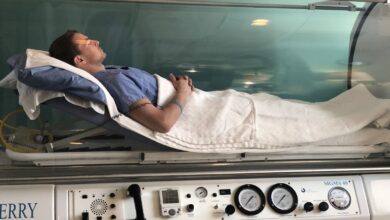How Do You Know If Acupuncture Is Working? Subtle Signs Your Body Is Healing

Acupuncture therapy, an ancient healing art, has transcended centuries and cultures, captivating many with its promise of natural restoration. Yet, the journey of healing through acupuncture therapy isn’t always loud or dramatic. Often, it’s the quiet, subtle signals from your body that reveal something powerful is unfolding beneath the surface. You know acupuncture is working when your body begins to show small but noticeable signs of balance and relief. Understanding these signs can transform your healing experience from one of uncertainty to trust and empowerment.
Key Takeaways
- Improved sleep quality often signals that acupuncture therapy is restoring balance to your body and mind.
- Stable energy and mood throughout the day can indicate that your Qi flow is becoming more harmonious.
- Reduced pain or inflammation shows that acupuncture is stimulating your body’s natural healing mechanisms.
- Better digestion and appetite may suggest that your body systems are aligning and functioning more efficiently.
- Calm emotional state after treatments reflects deeper nervous system regulation and holistic recovery.
What Is Acupuncture?
At its core, acupuncture involves inserting extremely fine needles into specific points on the body to harmonise the flow of energy, or “Qi.” Rooted in Traditional Chinese Medicine (TCM), it operates on the principle that disruptions or blockages in this energy flow cause illness or discomfort. Modern medicine echoes this by recognising acupuncture’s capacity to stimulate nerves, muscles, and connective tissues, boosting circulation and activating the body’s natural painkillers.
Although acupuncture’s benefits can be noticeable, they often manifest beyond the obvious. Learning to interpret subtle cues is crucial because successful healing is not only about immediate relief but also about the body gradually realigning, sometimes in ways so delicate they escape common notice.
Understanding Acupuncture and Its Healing Process

What Happens During an Acupuncture Session?
When you lie down for an acupuncture session at ACA Acupuncture and Wellness, the practitioner carefully chooses points based on your unique symptoms and overall health picture. Needles may be placed along meridians, the body’s energy highways, to unblock stagnation and restore balance. This delicate art harnesses both millennia-old wisdom and modern neuroscience.
The insertion itself can trigger micro-stimulations to the nervous system, encouraging the release of endorphins and serotonin, which are natural mood enhancers. Simultaneously, the stimulation of Qi flow fosters equilibrium, less tangible but profoundly therapeutic.
Immediate vs. Long-Term Effects of Acupuncture
Expectations often clash with reality when it comes to healing timelines. Some individuals find themselves blissfully relaxed or relieved from pain immediately after treatment. Others might feel changes days or even weeks later, as accumulated effects gradually mend their body’s internal environment.
Chronic ailments, for example, may require a series of sessions before noticeable shifts occur. Healing is rarely linear or predictable; it’s more like ripples expanding outward after a stone is cast in a pond.
Factors Influencing Acupuncture Effectiveness
Effectiveness depends on a complex interplay of factors:
- The severity and nature of your condition influence how quickly acupuncture takes effect.
- Regularity matters; consistency in treatment builds on small gains.
- The depth of the practitioner’s training and their ability to tailor treatments can turn a decent experience into a transformative one.
Your openness to the process, both physically and mentally, can also shape the results, as healing embraces mind, body, and spirit.
Recognising Subtle Signs Your Body Is Healing After Acupuncture
Physical Signs
Healing often whispers before it shouts. You might notice a curious tingling sensation or warmth around the needle sites, a gentle sign that energy is moving. Temporary sensitivity or mild soreness isn’t uncommon and often signals tissue responding to stimulation.
Many clients report an unusual heaviness or lightness in limbs, as though muscles are relaxing deeply for the first time in a long while. There might also be a fleeting change in pain patterns; sometimes discomfort shifts locations or feels different, underscoring the body’s internal recalibration.
Emotional and Mental Signs
The impact of acupuncture extends beyond the physical body. You may find your mood lifting subtly, without obvious cause, as anxiety and tension begin to ease. Sleep often improves, not just in quantity but in quality, contributing to heightened daytime alertness and mental clarity.
It’s not unusual to experience fleeting emotional releases, such as unexpected tears or bursts of calm, reflecting that acupuncture gently unravels stress deeply stored in the body.
Physiological Changes
Less obvious, but equally important, are shifts in digestion, appetite, and hormonal cycles. Some clients notice their digestion becomes more regular or their cravings change, signalling balance restored within the gut-brain axis.
Women might observe more consistent menstrual rhythms or lessened premenstrual symptoms, pointing to endocrine system regulation. Breathing can feel easier, and immune system responses may improve, manifesting as fewer colds or quicker recovery times.
How to Track Your Progress and Effectiveness of Acupuncture
Keeping a Healing Journal
Tracking your journey in a journal can unlock insights otherwise overlooked. Document physical sensations, emotional shifts, and unexpected changes in everyday bodily functions. Over time, patterns and progress emerge, affirming the subtle power of the treatments.
Communicating With Your Practitioner
Open communication paves the way for more customised care. Share your observations, even those that seem minor or unusual. Skilled acupuncturists adapt their approach based on your feedback, balancing stimulation points or adjusting treatment frequency, enhancing efficacy.
When to Expect Noticeable Improvements
Healing varies from person to person. While acute conditions often show marked improvement within a few sessions, chronic issues demand patience and sustained effort. Becoming attuned to subtle shifts can prevent premature dismissal of treatment and encourage a supportive, trusting attitude towards the healing process.
If progress stalls or symptoms intensify, it may signal the need for complementary therapies or a reassessment of health status with your practitioner.
Common Myths and Misconceptions About Acupuncture Effectiveness
Myth: Acupuncture Works Immediately for Everyone
Healing is highly individual. Some people experience rapid relief, while others need several treatments before noticing full benefit. Remaining patient and consistent helps the therapy achieve its greatest effect.
Myth: No Pain Means No Effect
Acupuncture’s efficacy isn’t measured by discomfort. Gentle sensations often indicate effective Qi flow stimulation. The absence of pain does not mean there is no therapeutic impact. These subtle responses show that the body is adjusting and healing through acupuncture therapy.
Myth: Only Pain Relief Indicates Success
Acupuncture enhances overall wellbeing in subtle yet powerful ways. It can improve sleep, ease emotional tension, and support digestion. These quiet shifts are small but meaningful changes that build over time. They often go unnoticed when success is measured too narrowly.
How to Avoid Misinterpreting Subtle Healing Signs
By tuning into your body with curiosity and awareness, you can distinguish genuine healing signals from unrelated bodily sensations, fostering a deeper connection with your health journey.
Scientific Research and Evidence Supporting Subtle Healing Signs
Emerging studies show acupuncture influences the central nervous system, modulating neurochemical responses and reducing inflammation. Functional MRI scans reveal distinct brain activity shifts post-treatment, corresponding with reported improvements in mood and pain.
Research increasingly supports the idea that subtle symptoms correlate with systemic healing rather than immediate, singular fixes. Studies highlight gradual improvements in body systems and mental balance. These findings suggest acupuncture therapy works through cumulative effects. Over time, consistent treatment fosters long-term wellbeing and harmony.
Tips for Maximising Acupuncture Benefits

Preparing for Sessions
Hydrate well before appointments and avoid heavy meals to enhance energy flow. Approaching sessions with a calm mind, perhaps through deep breathing or light meditation, prepares your body to receive treatment fully.
Post-Session Care
Prioritise rest after your session, allowing the body to integrate healing signals. Drinking water supports detoxification. Avoid strenuous physical activity to prevent disrupting the subtle recovery underway.
Complementary Practices to Enhance Healing
Incorporate gentle stretching, mindfulness meditation, or nourishing nutrition to amplify acupuncture’s effect. These practices reinforce the body’s natural wisdom and promote holistic wellness.
When to Consult a Healthcare Provider
While acupuncture is generally safe, be vigilant about adverse reactions, such as prolonged pain or fatigue. Always inform your primary healthcare professional when combining acupuncture with other treatments, ensuring a coordinated approach. Seek medical advice if you experience persistent worsening of symptoms or new concerning signs.
Signs Acupuncture Is Working: Trusting Your Body’s Quiet Language
Healing with acupuncture is a unique and intimate process, often revealed through gentle changes rather than dramatic transformations. From the nuanced warmth at needle sites to improved emotional resilience and quiet physiological adjustments, the body speaks in a delicate language of recovery.
By embracing patience and heightened self-awareness, you can perceive these subtle signals, nurturing a deeper partnership with your health. In doing so, acupuncture becomes not just a treatment but a journey towards balanced wellbeing, reinforcing that true healing happens when the mind, body, and spirit align harmoniously.




